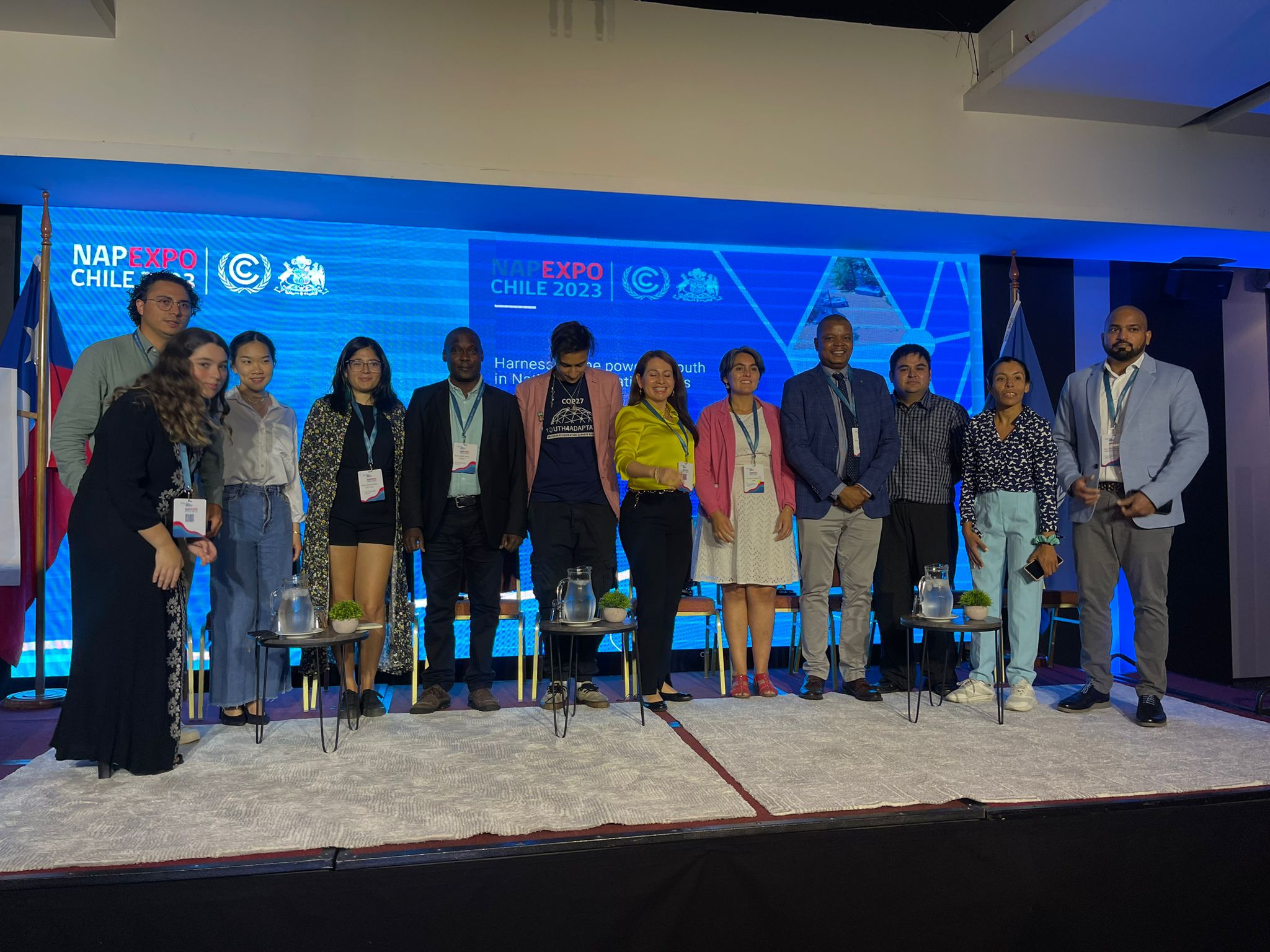GCA at NAP Expo 2023: Harnessing the Power of Youth in National Adaptation Plans
At the National Adaptation Plans Expo 2023 in Santiago de Chile, the event titled ‘Harnessing the Power of Youth in National Adaptation Plans’ raised awareness about the benefits of youth participation in adaptation policy- and decision-making processes
I
n partnership with the United Nations Framework Convention on Climate Change (UNFCCC) Least Developed Countries Expert Group (LEG)/Multi-stakeholder subgroup, the Government of Chile, and the Local Conference of Youth – LCOY Chile, on 29th March the Global Center on Adaptation (GCA) Youth Leadership & Education Program held an event as part of the National Adaptation Plans (NAP) Expo 2023 in Santiago de Chile titled ‘Harnessing the Power of Youth in National Adaptation Plans’.
This event was part of the consultation process aimed at gathering input for the guide ‘Youth Engagement with National Adaptation Plans,’ which will present good practices, methodologies and recommendations on young people’s engagement in the planning and implementation of NAPs. The guide will be presented at COP28 in Dubai, United Arab Emirates.
The event was aimed at raising awareness on the benefits of youth participation in adaptation policy- and decision-making processes, sharing lessons learned on preparing young people to withstand climate change impacts, and showcasing youth-led adaptation solutions from Africa and around the world.

The event livestreamed on the UNFCCC YouTube channel, with simultaneous interpretation in English, French, and Spanish for both virtual and live audiences.
The event saw the participation of members of the Chilean government, the UNFCCC LEG/ Multistakeholder subgroup, a representative from the COP28 Presidency, and young leaders from Chile, Malawi, Cameroon, Switzerland, United Arab Emirates – notably:
- Adriana Valenzuela, Thematic Lead Youth Leadership & Education
- Johanna Arriagada Diaz, Climate Change Division, Ministry of Environment, Chile
- Benon Yassin, LEG / Multi-stakeholder subgroup, Malawi
- Amer AlKindi, Lead Negotiator on Adaptation, United Arab Emirates
- Juvenile Ngum Ngwa, YouthADAPT 2021 Winner, Cameroon
- Alvaro Alexis Alfaro Morales, COY15 organizer, Chile
- Carolina Ortiz, REDLAMA, Chile
- Emiko Sepúlveda Mabe, General Coordinator, LCOY Chile
- Bastián Barría, General Coordinator, LCOY Chile
- Noah Buccolini, Tremendas, Chile
- Lydia Dai, Focal Point YOUNGO Adaptation, Switzerland
- Genaro Godoy, Focal Point YOUNGO Finance & Markets, Chile
Speakers at the event discussed youth engagement in national adaptation planning and action, including the challenges, needs and opportunities of youth inclusion at all levels of adaptation policy and decision-making. They highlighted the need and potential of harnessing the unique perspectives and strengths of young people to foster transformative and far-reaching adaptation solutions, including through intergenerational partnerships and collaborations. The main areas of discussion were:
- Funding: Finance has been identified as one of the key hindrances to effective adaptation action for youth-led and youth-focused initiatives. Speakers highlighted the challenge of availability and access to funding for youth-led initiatives, along with technological support and education. As a result, there is a missed opportunity to channel the insights and strengths of young people for transformative, innovative, and far-reaching climate action.
- Multistakeholder collaboration: Young people must be seen as partners, rather than just beneficiaries. The interventions highlighted the need and potential of harnessing the unique perspectives and strengths of young people to foster transformative and far-reaching adaptation solutions. Through intergenerational partnerships, governments can collaborate with youth organizations to implement and scale up adaptation solutions.
- Assessments and measurements: Moreover, vulnerability and resilience assessments for young people, as well as matrices and indicators that can effectively measure the impact of adaptation policies on resilience-building, should be mainstreamed and included in the NAP process. Clearer information on NAPs can help overcome educational and language limitations, and foster the integration of indigenous and historical knowledge. Similarly, documenting ongoing youth processes and initiatives worldwide is essential to better inform national adaptation planning.